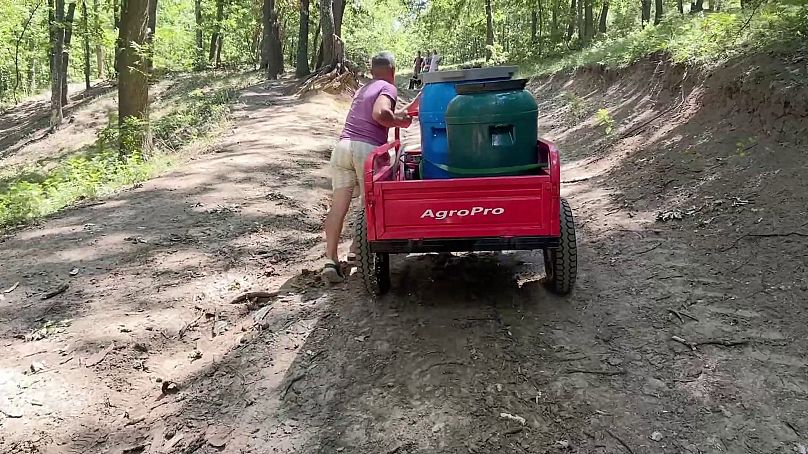Romania is feeling the harsh effects of the recent temperature spike across Europe, as drought has severely impacted daily life, especially in the southwestern county of Dolj.
In the village of Teascu din Deal, residents face a daily challenge to find water. Many walk long distances to springs or wells, carrying heavy five-litre jerry cans or barrels back home.
Nicolae Nițuleasa, who resides in Teascu din Deal, is among those who must travel far to reach a spring drilled by the town hall. However, the flow has dwindled to a trickle, so people like him have to wait for long periods to fill a single bottle.
Others are forced to trek even further—sometimes through rough forest paths—risking spilling the water on their return journey.
“It’s hard in the heat, especially without water,” says Nițuleasa. “By the time I arrive home, the water is no longer cold.”
All 50 families in Teascu din Deal share this hardship. Some have resorted to collecting rainwater to supplement their supply.

“We built a reservoir and collect rainwater, but during drought it’s very hard,” Ruxandra Boltașu from nearby Argetoaia explained.
Another Argetoaia resident Bălă Marin added, “We installed gutters and a one-tonne tank to gather water for our chickens and vegetables.”
Local officials acknowledge the severity of the problem but say options are limited.
“There is no other solution for the local people,” Argetoaia Mayor Elena Dabega told Euronews Romania. “Next week, the mayor will arrange machinery to spread stones and improve access to the well.”
Romania's water crisis extends well into the Danube river valley, where wells have also dried up, and residents rely on a limited municipal water supply.
“I buy water because I need it for cooking,” one resident told Euronews. Another described the situation as “pure poverty,” comparing it to the Sahara Desert, as pumps and water systems fail to meet basic needs.
According to Romania's National Meteorological Administration, one-third of the country is experiencing the latest extreme drought.







